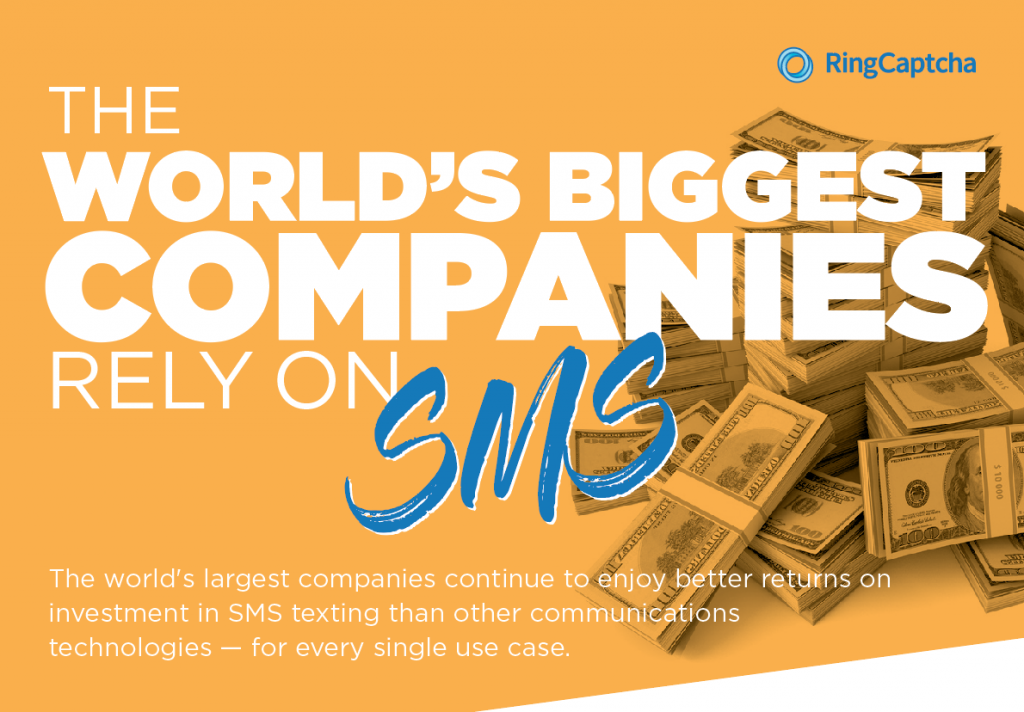Other Big Uses
In addition to onboarding new users with SMS, large companies are using SMS for opt-in authentication of logins. Instead of making it mandatory for everyone, users who are concerned about security can opt in for 2FA logins with Apple, Gmail, Microsoft Outlook, Facebook,Twitter and Apple. Another use warge companies are also offering SMS for secure password resets -- including Yahoo, eBay and PayPal. Large companies are also confirming transactions, sending notifications, encouraging downloads of mobile applications, growing their email marketing lists, and transmitting a wide array of marketing messages with massive open and clickthrough rates.How Macy's Does It
Texts sent out by businesses include marketing messages, like the ones Macy's sends on an opt-in basis. Actually, this Fortune 500 company has three different uses of SMS going. One of them lets shoppers obtain status updates regarding online orders for pickup in a brick-and-mortar store. Another opt-in service sends customers up to three messages a week with the latest promotions and coupons. And, the Macy's website includes a call-to-action message encouraging people to send themselves the link to download the mobile app. That tactic yields an 840-fold higher clickthrough rate than online display ads for 1% of the price. Indeed, Macy's and other large companies have a very compelling reason to stick with SMS: consistently stronger return on investment for every single use case. For instance, marketing messages not only enjoy higher open rates than email, but they're also opened faster -- 90% of the ones that are read are opened within three seconds, according to a report by Dynamark. The report also claims that the total read rate for an SMS marketing campaign amounts to a breathtaking 98% and 29% of recipients respond. (However, we see more variation in statistics about this use case for text messaging than any other, so while we love what Dynamark has to say about the success of these tactics, we continue to seek further confirmation on the subject.)Campaign Data
Statistics on specific campaigns are enlightening. For instance. Ford Motors enjoyed a 15.4% conversion rate on a promotion that generated qualified leads on new Taurus and Escape model vehicles -- salespeople were able to follow up immediately with those who expressed interest. Speaking of follow-ups, that's one of the uses of SMS by the fifth-largest company on the Fortune 500 list. McKesson offers hospitals and healthcare providers the ability to send reminders to patients and in doing so recoups over $400 million that would otherwise be lost to missed appointments. One might argue that has some things in common with notifying travelers (and their loved ones) of arrivals and departures, like many travel-related companies do -- ranging from mass transit services to airlines, airports, and providers of accomodations. These types of alerts are often specific to a single trip or route rather than an overall subscription -- except in the case of ridesharing services, that is. While we're at it, companies like Uber use SMS to onboard new users and confirm their location; then as users start booking, they receive notification text messages when their rides are are about to arrive. Drivers can also opt in to receive notifications about things like high-demand events that might yield surge pricing fares. Since its invention in 1992, SMS has gone on to become the most widely used data application among users by 2010, with an estimated 3.5 billion active users on 80% of mobile devices that year. It remains the most popular form of communication in the world, with an average of 16 million texts going out every minute. The numbers indicate that not only is SMS usage widespread but will likely remain so for quite some time to come -- including working in synergy with other communications technologies rather than become obsolete. P.S. -- If you liked this article, you might find our SMS service of even greater interest. Please click here to learn more.
P.S. -- If you liked this article, you might find our SMS service of even greater interest. Please click here to learn more. 

 Notifications
Notifications 

